Thanks to Zondervan for a review copy of this book and an opportunity to participate in the Blog Tour for Darrel Bock’s A Theology of Luke and Acts.
A few weeks back Zondervan went on the look-out for bloggers who were interested in joining up on their Blog Tour for this fine book, A Theology of Luke and Acts. Who wouldn’t want to read something by Darrel Bock, right? It makes sense, too, for Bock to be tabbed to write this particular volume, given that he has now completed commentaries on both Luke’s Gospel and Acts.
 Because of the size of the book (roughly 450 pages of text) and the short amount of time to read the book before the Blog Tour, reviewers were asked to pick one chapter and review it. Fair enough. I opted to read chapter 17, ‘Women, the Poor and the Social Dimensions in Luke-Acts.’
Because of the size of the book (roughly 450 pages of text) and the short amount of time to read the book before the Blog Tour, reviewers were asked to pick one chapter and review it. Fair enough. I opted to read chapter 17, ‘Women, the Poor and the Social Dimensions in Luke-Acts.’
Bock notes the cultural prejudice against women during Jesus’ time, specifically how they were not seen as reliable witnesses by society. Yet, they serve that function in Luke’s gospel time and time again, from Anna the prophetess to those who first receive the news of Jesus’ resurrection. They are some of his most loyal followers, often more faithful than the men who walked with him.
Interestingly, the women of Luke’s gospel don’t fit a single mold. From rich (Joanna) to poor (the woman who gave her two mites), from righteous (Elizabeth and Mary, the mother of Jesus) to those with unrighteous pasts (the women who anoints Jesus’ feet)- Luke seems to take care to include the whole gamut of possibilities.
Bock also correctly notes that individual women are not the main focus in Acts, since the focus of Acts tends more towards communities (through the ministry of individuals, of course). Key here is the inclusion of women in receiving the Spirit in Acts 2, responding positively to Paul’s teaching in Thessalonica, etc. Priscilla, wife of Aquila, is somewhat different, however, in that she’s not a recipient, but a teacher.
As for the poor, it has been long said that Luke has great concern for them. Bock notes, correctly, that we can’t spiritualize these teachings, but must accept them for what they are: declarations that the poor will be blessed. He also notes that this concept is “rooted in OT texts… the pious poor of the Hebrew Scriptures who are exploited” (p355).
Bock rejects the over-politicizing nature of liberation theology, remarking “What we have in these passages is something that falls between the full political agenda of a liberation perspective and the ignoring of the poor that often is the approach of the alternatives to liberation” (p355). I think he is basically correct here. While I’m not convinced it’s entirely possible to separate Jesus’ teachings from politics- especially not in Jesus’ day, when ‘separation of church and state would have been a completely foreign view- it’s hard to imagine that Jesus would call for the overthrow of a government in order to liberate the poor and oppressed (not to mention probably replace it with a new government that will form a new category of oppressed people).
As solid as this chapter is, I felt like he came up one step short in explaining the importance for this aspect of Jesus’ ministry, especially how it relates to the Kingdom of God.
In fact, the ‘Kingdom’ as a category seems to have received the short shrift from Bock in this volume. According to the subject index, it’s only discussed on about 10 of the 450 pages. Now, I realize the Kingdom of God is not peculiar to Luke’s writings, so perhaps Bock felt the need to focus elsewhere. Then again, healings, discipleship, Israel, the Hebrew Scriptures- these are crucial to all of the gospels yet receive their own chapters in this book.
The point is that the ‘Kingdom’ is central to Jesus’ preaching, and we know this because it’s central to the Synoptic Gospels (elsewhere Bock calls it a ‘key theme’ [p141]). Jesus came proclaiming the Kingdom with his words, and demonstrating its arrival with his deeds. So what does Luke’s focus on women and the poor tell us about the Kingdom that Jesus proclaimed?
This is where I was disappointed in Bock’s chapter. It’s not that he says anything wrong; in fact, there’s little to argue with in this chapter. It’s that he doesn’t say enough. He says basically what anyone with a little bit of time studying Luke-Acts can come up with. What he doesn’t do is connect the dots and tell us just why it’s so important Jesus’ ministry included reaching out to women and the poor, or why Luke in particular highlights this.
Keep in mind that I’m focusing on one chapter out of 23. I highly recommend you go and read other reviews included in the Blog Tour to get a fuller picture of the book’s quality. From what I read (which was a little more than just this chapter), it seems like Bock makes solid observations, but may come up a tad short in pulling it all together and demonstrating the coherence of Luke’s theology.













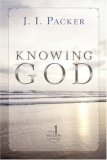
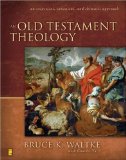



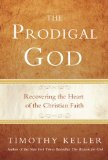
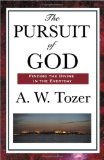
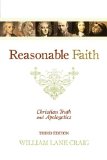

ZECNT Blog Tour: Osborne on Matthew, Part 3
Posted in book review, tagged commentaries, Grant Osborne, Matthew, ZECNT on Tuesday, December 21, 2010| Leave a Comment »
Thank you to Zondervan for a review copy of Grant Osborne’s commentary on Matthew and an opportunity to be a part of the ZECNT Blog Tour. See also Part 1 and Part 2 of this review.
While my first post of this series looked mostly at the overview of the series and the introduction, and the second at specific features within the commentary proper, this post’s goal is to give my final thoughts on the commentary as a whole. Given the fairly unique nature of the ZECNT series, I think it might be helpful to break my final thoughts down into two main sections: features and commentary.
Regarding the features, the ZECNT nails it pretty well. Sure, maybe it didn’t need all 7 sections, and I would have loved the “sentence flow” to be in Greek rather than Osborne’s English translation. But, as my second post details, the features aren’t wasted, and they actually fulfill their purpose. The form helps facilitate the function. The ZECNT team is to be commended for a creative approach to the commentary genre, one that hits the target “busy pastor” audience well and should help in sermon preparation.
But every commentary needs to be judged largely on the ability of the author to explain the biblical text and defend his conclusions. As I’ve already said in the previous posts, because of the relatively short amount of time I’ve had with the commentary I have not been able to spend as much time as I would like in order to give my opinion on the matter. It’s important to me that I need to get a strong grasp of the commentary before I begin recommending it over other trusted ones, and 1100+ pages is tough to wade through quickly.
My sense as I read through some of it is that Osborne is an excellent evangelical commentator. His conclusions are in the mainstream evangelical camp; there is nothing world-rocking to be found in these pages. He does survey the options, but is clear where he stands on each matter. The Gospel of Matthew is well served in the commentary world, with Carson, France and Blomberg holding down the camp in the “intermediate category,” and Allison and Davies, Hagner, Turner, Nolland and Keener in the larger, more technical camp. Given the prevalance of Greek in the commentary, Osborne’s would fit the “technical” category, though would be much more accessible than Allison and Davies or Hagner to the pastor whose Greek has slipped some. For the pastor looking for a solid evangelical commentary, Osborne would be an excellent choice, especially given the creative and time-saving approach to the commentary layout. His pastoral heart, in my opinion, also sets him apart, as it’s clear he has experienced the struggles of most pastors in sermon preparation and genuinely wants to help them.
The series editors are to be commended for an excellent concept and approach to the ZECNT series, and Grant Osborne is to be commended for executing it so well.
Read Full Post »